The new luxury: It isn't what it used to be... it's better
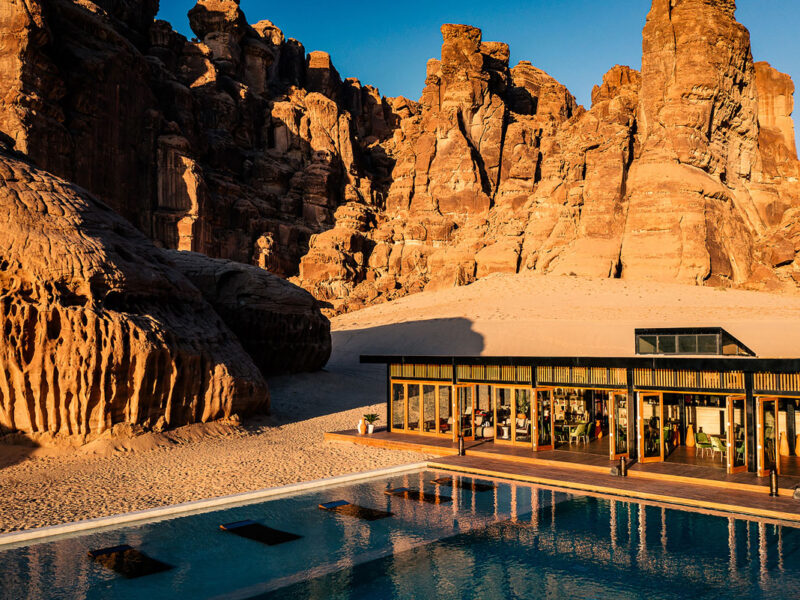
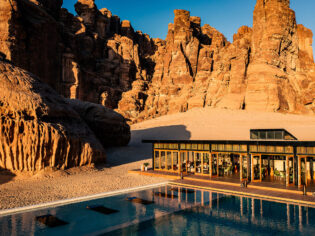
Our Habitas AlUla ticks all the boxes: a remote, high-end resort with culturally immersive experiences. (Image: Tanveer Badal Photography)
In the past, luxury in travel was signalled by high thread counts and upscale amenities, but the concept has been redefined. From purpose-driven adventures that give back to the environments they journey through to hotel stays that fully immerse you in the destination you’re in. Today’s luxury travel landscape is all about the experience.
When Torunn Tronsvang left Dubai to work in Bhutan in 2008, she knew a thing or two about luxury. She had wrapped up a role with Jumeirah, whose ultra-extravagant Burj Al Arab hotel – think gold-plated iPads, marble staircases and a revolving bed in the Royal Suite – has become synonymous with modern Dubai. She brought exacting standards of quality and excellence to her new role as lodge manager for Amankora – Aman Resorts’ collection of five lodges spread across the valleys of this Himalayan Kingdom, which had opened four years earlier – and parlayed them into a different type of luxury travel.
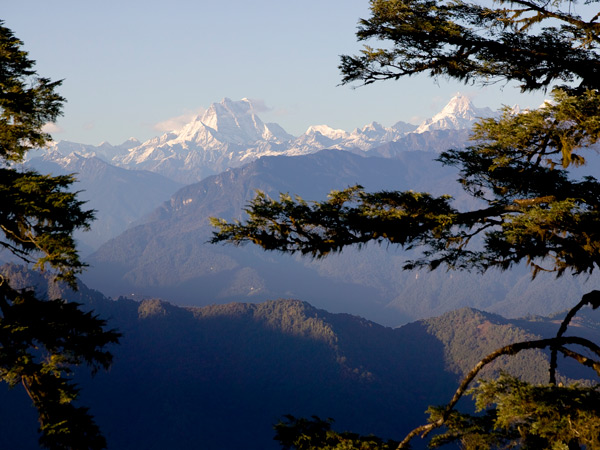
The Himalayas have long lured travellers, but they are now longing to experience more than its natural beauty.
Part of Tronsvang’s role involved designing guest experiences. Today guests at one of Amankora’s five lodges might find themselves joining young monks at a neighbouring monastery in prayer, lighting butter lamps, taking lessons in traditional Bhutanese painting with local artists, beekeeping and baking khabzey biscuits in a farmhouse.
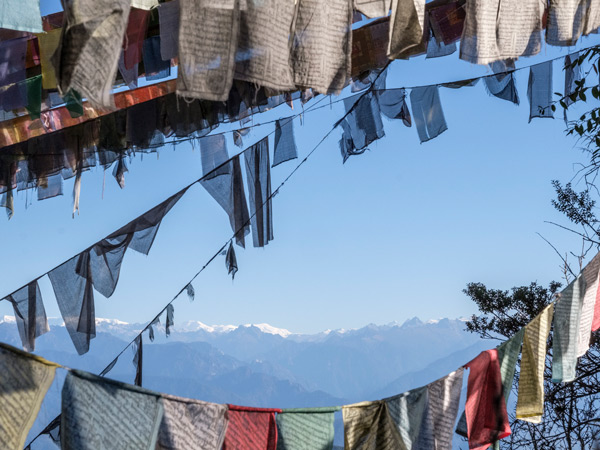
Prayer flags are ubiquitous in Bhutan. (Image: Florian Lang)
Tronsvang recalls seeking out a farmhouse where guests could visit for a traditional meal and have the chance to interact with local villagers; cultivating a symbiotic relationship with the host community and the environment has been part of the Aman brand’s DNA since it opened its first property, Amanpuri in Phuket, in 1988. She has vivid memories of sitting on the farmhouse floor while Mama prepared the food – including butter and cheese from the cow they had all just milked – and drinking the local liquor.
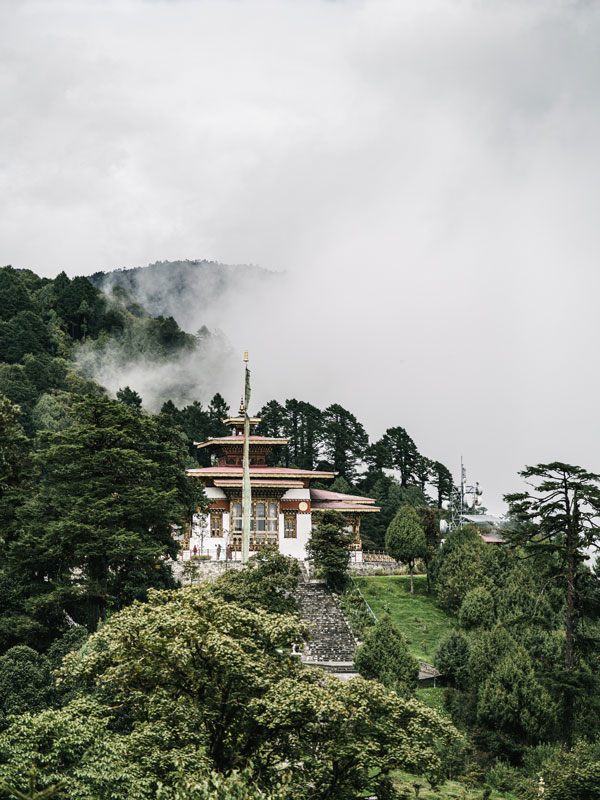
Traversing Dochu La Pass in Bhutan is part of an Amankora journey with Aman.
“There was a cat walking around, kids running about and everyone was talking in their own languages. There was so much laughter and an incredible atmosphere from sharing a completely authentic, unique experience.” She sensed a shift in how luxury travel was evolving. “It made me realise that we will always come to Bhutan for nature, but it’s the people that end up making the big difference. And to be able to connect people with people, and people with places, that is luxury.”
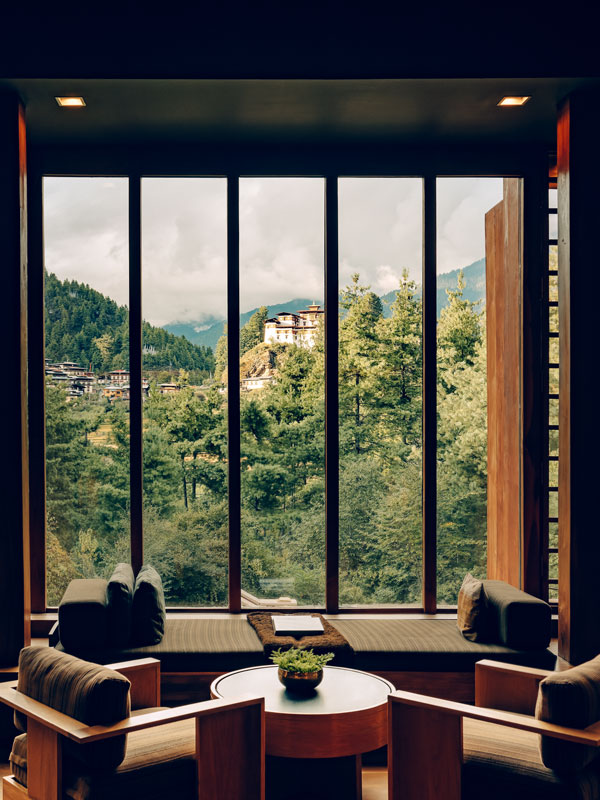
Paro Lodge in Bhutan is part of Amankora – Aman Resorts’ collection of five lodges in the Himalayan Kingdom, which offer exceptional guest experiences that tap into authentic local culture. (Image: Jerome Galland)
Fast-forward 16 years, and moments like this have come to represent a new version of luxury travel that eschews material excess in favour of immersion, connection and experience. Tronsvang herself translated these learnings to her home country, when she launched Up Norway in 2016 to create off-the-beaten-path Scandinavian journeys that get under the skin of the places they venture. So how did we get here?
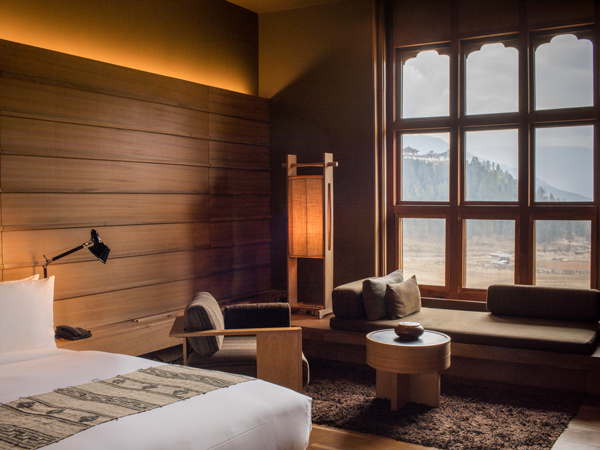
Gangtey Lodge is one of Aman’s properties nestled in Bhutan’s Phobjikha Valley. (Image: Simon Buxton)
By any other name
Debra Fox, managing director Australasia for Abercrombie & Kent (A&K) and Crystal, first sensed a shift in the meaning of the word ‘luxury’ almost a decade ago. With the rise of the big online commodity players, which branded everything ‘luxury’, “I had this conscious notion that luxury was changing. Or the perception of luxury was changing,” she says. “So if you weren’t a backpacker, you could nearly be called luxury, and it became a marketing ploy to bring people in.” It meant brands that truly offered the highest calibre of product needed to evolve how they communicated their offering in order to distinguish themselves. Or, in some cases, do away with the word in their branding altogether.
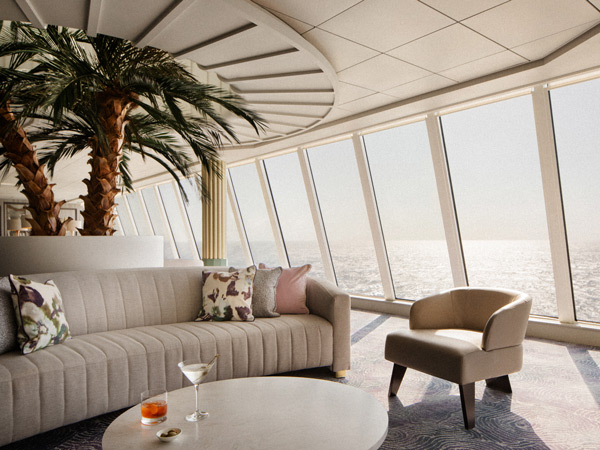
Elegant ship Crystal Serenity.
Crystal Cruises had been a benchmark in luxury cruising for more than 30 years when A&K acquired it in 2022. And in its rebirth as Crystal, the word ‘luxury’ is not even employed, with the brand favouring the term ‘exceptional’ instead. “And so the word luxury almost doesn’t cut it these days,” says Tony Archbold, VP Sales APAC for Crystal. “It’s about the experience received, how it’s delivered.”
Semantics aside, when it comes to redefining what luxury travel looks like today, following through on the promise of an amazing travel experience is the key distinguishing factor, and A&K has been doing this for more than half a century. Selling ‘adventure by day, luxury by night’, and with 60 offices around the world, it dials into its little black book of contacts to ensure a personalised experience packed with money-can’t-buy experiences – from meeting a Maharaja in India to visiting the last two northern white rhinos remaining in the world in Kenya and learning about conservation efforts to save the species.
We’ve moved beyond prioritising material luxury. But while people might not be inspecting traditional markers of luxury, such as sheet thread count, travellers still have an expectation of quality and craftsmanship that is appropriate to the context they’re in, says Fox. And it’s not about bragging rights. “The new luxury is much more internal than it is external.”
“The modern luxury traveller wants to see value, but they’re not led by price. They are led by the value of the experience you’re offering them,” continues Fox. “They want the relationship, the expertise, the bespoke creation. And then for things to be seamless while they’re away.”
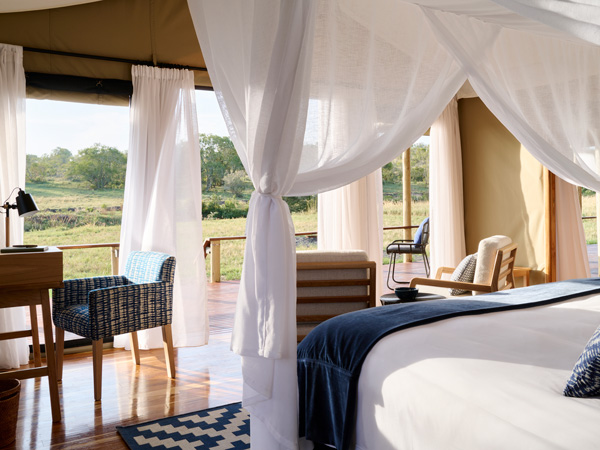
A&K’s Sanctuary Tambarare in Kenya.
Travel curators
“High net worth travellers are … looking for experiences they believe have been truly personalised for them,” agrees Alison Gilmore, director of ILTM, which stages industry showcases for the global luxury travel community. “When once, luxury could be defined simply by exclusive services and high-end amenities, today it goes beyond, focusing on meeting the specific needs of each traveller. And for the traveller, feeling the experience has been curated for them.”
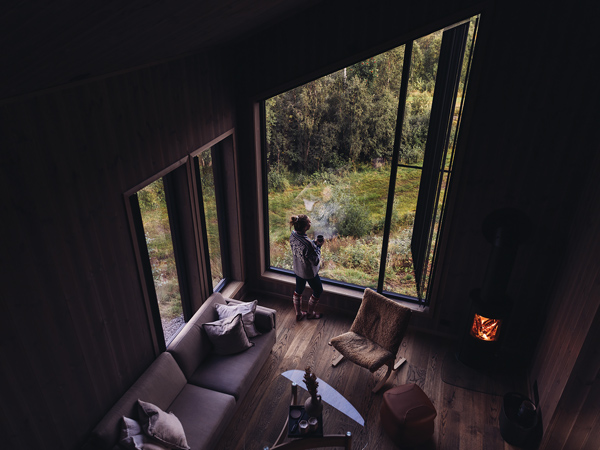
Up Norway curates Scandinavian journeys that venture off the beaten path and immerse travellers in local culture and nature. (Image: Aron Klein)
With her company Up Norway, Tronsvang considers herself a travel curator. In an age of information overload and overwhelm, finding an operator you trust to make qualified choices and create the perfect itinerary for you based on your own preferences is more desirable than ever, she says. “It releases that pressure on you to evaluate every option and make every choice. Because you have enough of that in your daily life. It allows you to go with the flow. And that is luxury. ”
Century-old operator Tauck, which operates land journeys and cruises around the world, relies on its highly localised tour architects to provide this experience. “A tour architect works on one particular tour for more than three years. They go into every single component and test it out time and time again to look at how that experience transpires over a day,” says David Clark, managing director Australia. And their insider knowledge is key to curating a perfectly paced itinerary.
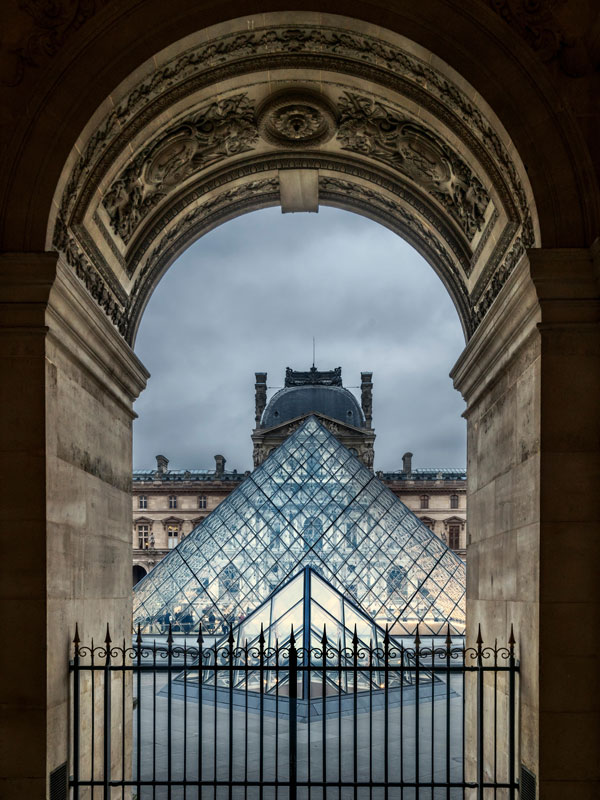
See iconic European sites in new ways to travel with Tauck. (Image: Yustinus Ustinus/Alamy)
Clark cites a visit to Claude Monet’s house in Giverny during a Seine River cruise as a golden example of all elements working in orchestration to create a truly immersive moment for guests. “They arrive at 7:30 in the morning before it opens to other visitors. Because that’s apparently when the sunlight was perfect for Monet to paint, and that’s when he painted his Water Lilies series.”
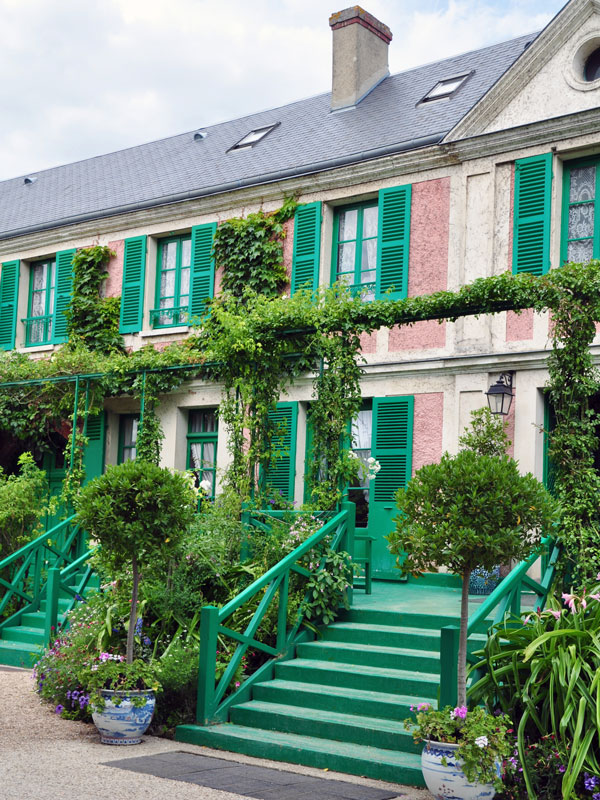
During a Tauk Seine River cruise, guests were treated to a private visit to Claude Monet’s home. (Image: A_Lein via Getty Images)
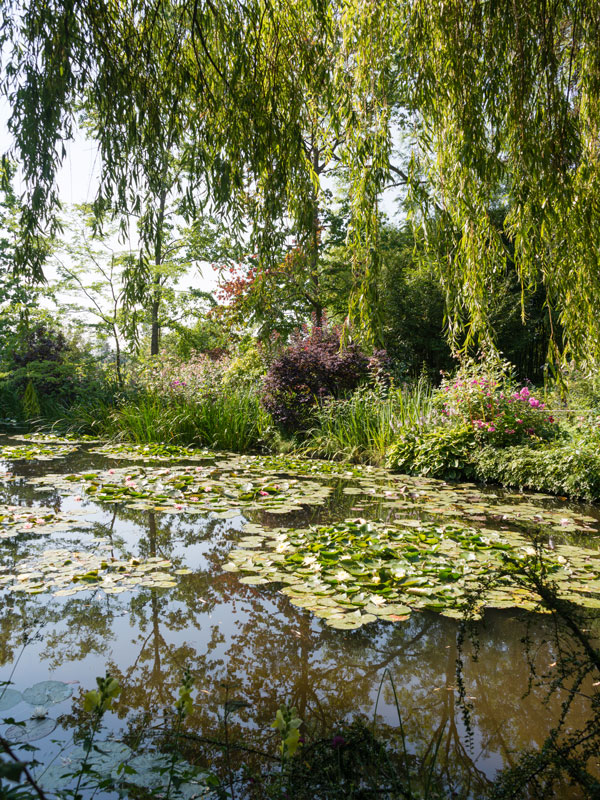
See the famous gardens of impressionist painter Claude Monet in Giverny. (Image: joel-t via Getty Images)
Experiential travel
The trend in experiential travel that continues to grow globally sees access to the world’s most incredible places, as well as immersion in their culture, as the hottest commodities. Consider checking into Our Habitas AlUla to learn stories of this ancient desert city with Saudi’s first female tour guides.
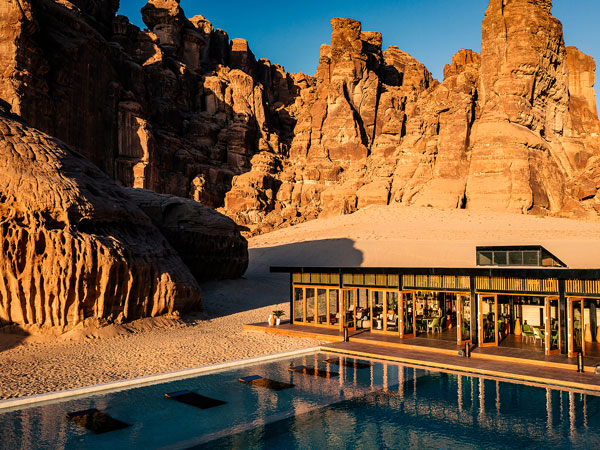
Our Habitas AlUla ticks all the boxes: a remote, high-end resort with culturally immersive experiences. (Image: Tanveer Badal Photography)
Taking part in a Hakata-ori craft workshop during a stay at The Ritz-Carlton, Fukuoka, which offers a deep dive into the heritage of a Japanese textile traditionally used for kimonos – and is reflected in the interior design of the hotel – for a 360-degree experience of this emerging Japanese city. Or diving with Jeju Island’s famous haenyeo (female divers) during a stay at JW Marriott Jeju Resort & Spa, which opened in South Korea in 2023.

The Ritz-Carlton, Fukuoka.
“A dying trade in the local community, this is also the resort’s way of cultivating preservation of the island’s culture and simultaneously providing an authentic immersive guest experience,” says Oriol Montal, managing director, luxury, Asia Pacific (excluding China) for Marriott International.
Those sailing with Heritage Expeditions, a Kiwi company that has pioneered responsible expedition travel since 1984, are afforded unique immersion into the places they’re visiting. “For us, it’s about going well beyond traditional tourist routes and cookie-cutter experiences, and responsibly taking our guests where no one else can,” says director and expedition leader Aaron Russ. “The luxury of experience is about being in the moment and having the opportunity to be actively involved.”
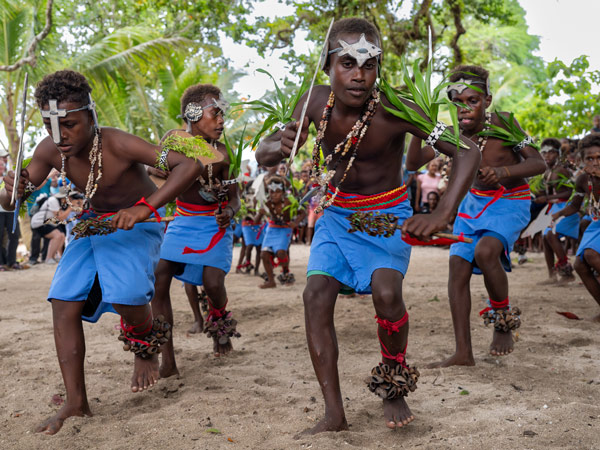
Meet Malaita’s Kwaio people with Heritage Expedition. (Image: Aaron Russ)
That might be joining Malaita’s Kwaio people in a sacred dance exclusive to Heritage Expeditions guests that’s so revered the only way to witness it is to take part; helping legendary mammalogist Professor Tim Flannery discover new species on rarely visited tropical islands; or assisting leading penguin scientists at the world’s largest and oldest Adelie Penguin colony in Antarctica.
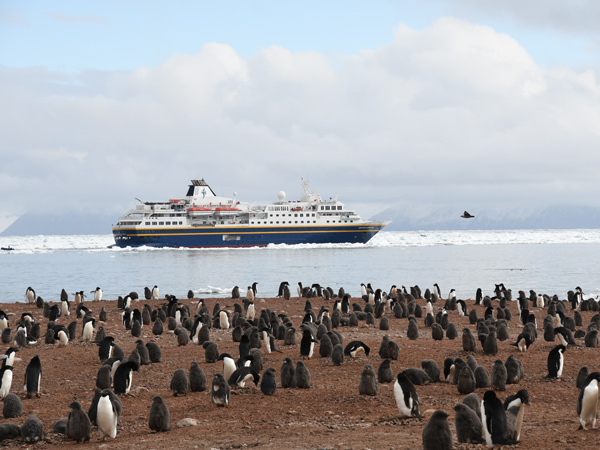
Sail with Heritage Expeditions to see the world’s largest and oldest Adelie Penguin colony in Antarctica. (Image: Aaron Russ)
Cruise lines such as Norwegian Cruise Line (NCL) are catering to a new demand for experience-rich travels with a focus on destination immersion, says Ben Angell, VP & managing director, NCL APAC. “For example, our Gourmet Tours shore excursions are specially curated for foodie travellers who don’t just want to go to a restaurant, they want to learn how to make local dishes, visit produce markets and meet winemakers. Similarly, our Go Local tours are designed to take guests beyond the usual sightseeing attractions to uncover the everyday lives of locals, whether that’s having lunch with a family in the mountains in Spain or chatting with a local farmer in Türkiye.”
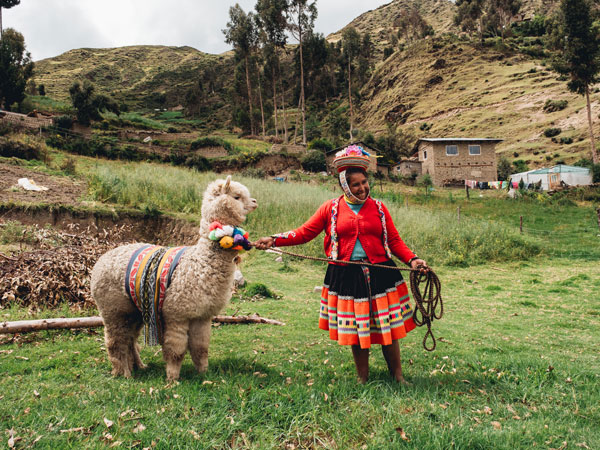
Find community-based tourism on an Intrepid Travel trip to Peru. (Image: Ryan Bolton)
Time and space
Perhaps we can attribute the boom in cruising we’ve seen in recent years to the number-one lesson the pandemic has taught us: that time is precious. We have emerged out the other side with a renewed sense of having no time to waste. “In recent months, we’ve seen extremely strong demand from first time cruisers who are really embracing and understanding the benefits of a cruise holiday, as all of your needs are met from the moment you step onboard,” says Gavin Smith, VP and managing director at Royal Caribbean Cruises. “Nothing else quite matches the luxury of being able to visit multiple countries and only unpack once, without the need to spend precious holiday time in airports or pay for expensive hotels in peak summer periods.”
Reflecting this lust for life, adventure cruising has been cited as a top travel trend by Virtuoso’s 2024 Luxe Report. And for Australian-founded operator Scenic’s expeditions onboard state-of-the-art discovery yachts such as Scenic Eclipse II, ultra-luxury has become about intimate, immersive experiences led by experts in their field: such as a glaciologist when in Antarctica.
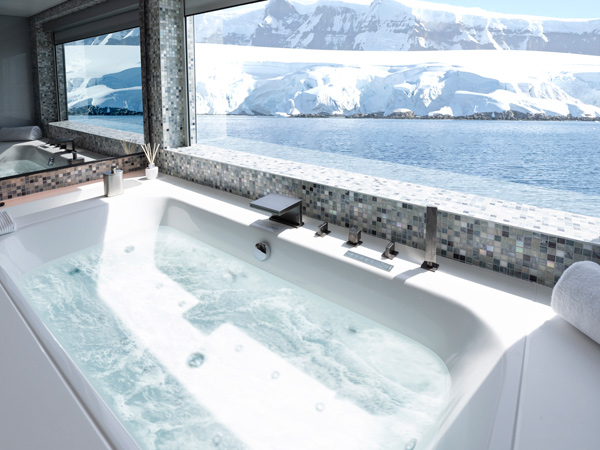
Luxe Scenic Eclipse II in the polar continent. (Image: Mislav Mesek)
The experiences, information and knowledge gained in a short space of time will leave you feeling like you’ve also been studying the region for years.
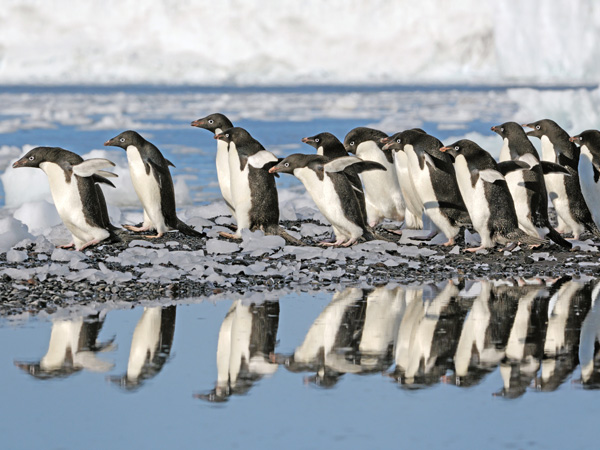
Scenic’s Antarctic cruises include exceptional wildlife encounters. (Image: Andreanita)
Similarly, the all-inclusive concept modelled by Club Med – with its beach and mountain holidays around the world – reflects the luxury of time, says Michelle Davies, general manager Club Med Pacific. “We have observed that luxury for many is defined as ‘time’ and ‘freedom’; time for myself, time for me to connect with my partner, time for me to truly connect with my kids. We can see that time and space to connect and build cherished memories is what travellers value most and is what we see trending as the new definition of luxury.”
Giving back
And it’s not just about connecting with each other, but connecting to the places and people we meet while there. “[Luxury consumers] are increasingly aware of the environmental impact of their actions and looking for travel experiences that are in line with their principles and offering something authentic and meaningful,” says ILTM’s Alison Gilmore.
It’s about taking things a step further with transformational travel – which could be luxury travel’s new vanguard and which is defined by The Transformational Travel Council as ‘intentionally travelling to stretch, learn and grow into new ways of being and engaging with the world’. The overall objective is to go on a journey that will last for a long time after you get home.

Abercrombie & Kent Philanthropy has 55 global projects that support the local communities it travels to. (Image: Kimberley Hickok)
When Geoffrey Kent founded A&K out of an old Bedford truck on the African plains in 1962, he pioneered the concept of ‘shoot with a camera, not with a gun’ safaris. Experiential travel that cares about its impact has always been a part of the brand’s DNA but continues to evolve. Abercrombie & Kent Philanthropy (AKP) was founded in 1982 with the mission to improve lives and protect the environment by supporting local communities in the places it travels to. Today it has 55 projects across the world. These include visiting a school in the Masai Mara where accessible water filtering device LifeStraw has made a difference to the lives of its pupils and their families. And visiting Women’s Bike Shops in Uganda and Tanzania, where women have been trained as mechanics and taught business skills to support their families. This, in turn, increases the communities’ mobility and busts stereotypes that only men can be mechanics.
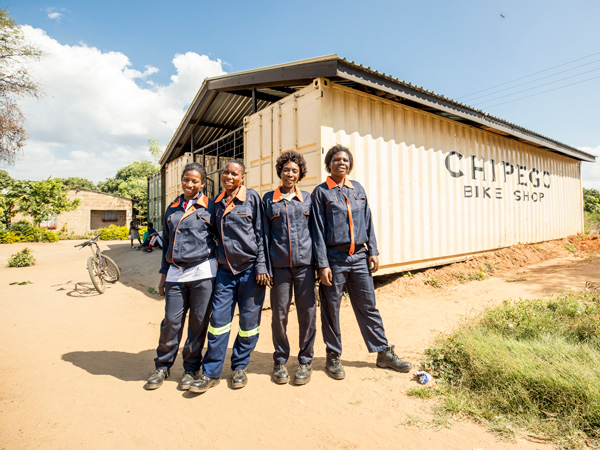
Women’s bike shops in Uganda and Tanzania where locals are taught to be mechanics, is another A&K Philanthropy project. (Image: Abercrombie & Kent Philanthropy)
“Travel has evolved from the age of taking only photos and leaving only footprints,” says andBeyond CEO Joss Kent. “The world’s wild places need us to do better than that. Now it’s about leaving a legacy and travelling with purpose – the very definition of transformational travel.”
Established in 1991, andBeyond runs bespoke tours throughout sub-Saharan Africa, Asia, South America and Antarctica. It has recently reopened one of its most iconic lodges, Phinda Forest Lodge in KwaZulu-Natal, South Africa, which was lauded as one of the first true eco lodges when it was built in the early 1990s and has just gone through an extensive rebuild.
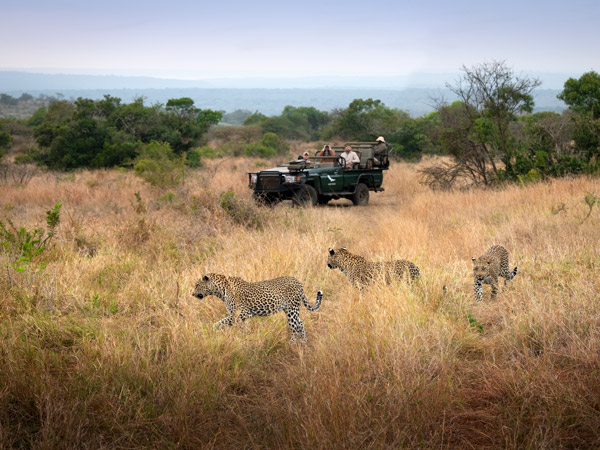
A safari at andBeyond Phinda Private Game Reserve.
Guests of andBeyond are invited to take part in tours that highlight community and conservation work and give travellers an opportunity to join in some of these activities, such as a Marine Predator Tagging Expedition in Mozambique and a range of WILDchild Eco-guide Challenges everywhere from Botswana to Chile, which are designed to introduce teenagers and their parents to the world of conservation.
“Aligning with the ethos ‘leaving the world a better place than we found it’, travellers hope to leave with more than just great memories, but a sense of meaning or shift in their mindset,” says Kent.
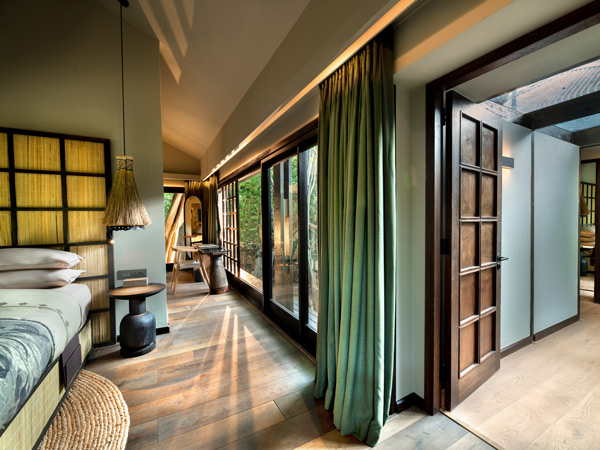
Inside Phinda Forest Lodge, which was recently rebuilt.
The whole package
It’s the whole package that amounts to the new definition of luxury – personalised access to extraordinary destinations and experiences that waste no time getting us to the heart of things. Knowing the operator we have chosen is doing right and that our impact on the places we’re travelling to is a positive one.
With higher-than-ever expectations for what travel can offer us, no doubt spurred by the pandemic, we want the perfect trip that resonates on all levels. “For many travellers, experience is the new luxury,” says NCL’s Ben Angell. “People don’t want to just tick destinations off their bucket list, they want to discover them. To experience them. To connect with them.”
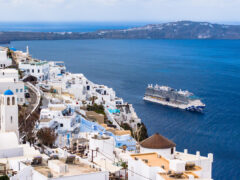
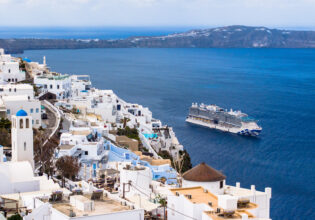
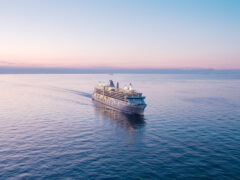
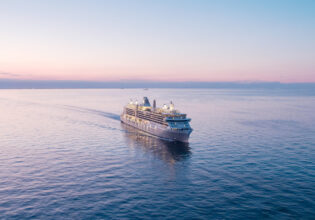
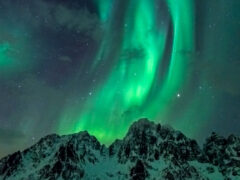
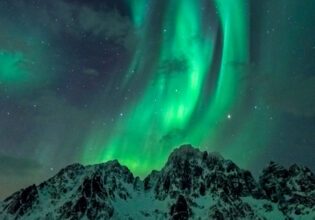
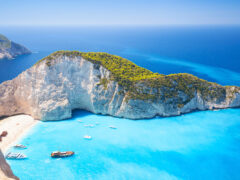
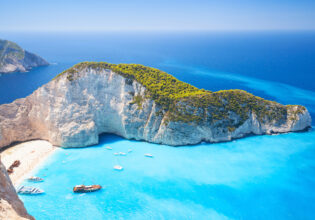


LEAVE YOUR COMMENT